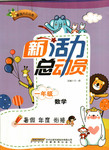题目内容
Somebody might say, “I want to be a big fish, as big as Bill Gates, in a big pool, as large as Microsoft.” However, we all know it is 36 for a green hand(新手) in the field. Then you have to 37 the question carefully. No matter 38 side you choose to take, you have your chance to succeed. Now the problem is which can provide you more 39 .
I choose to be a big fish in a small pool. A big company may provide you a 40 starting point, but a small company offers you opportunity to practice various 41 . During the 42 , you may 43 yourself, recognize your 44 points and find your potentiality(潜力). What’s more, 45 so many limitations and rules in a small company, if you are competent you have 46 chances to climb to a higher point. Finally, being a big fish (although) in a small pool, gives a green hand 47 self-confidence which is quite important for 48 .
49 , you should not be confined(使局限) to your small pool, and be 50 with being a big fish there. You should always dream of being a big fish in a big pool!
| 【小题1】 |
|
| 【小题2】 |
|
| 【小题3】 |
|
| 【小题4】 |
|
| 【小题5】 |
|
| 【小题6】 |
|
| 【小题7】 |
|
| 【小题8】 |
|
| 【小题9】 |
|
| 【小题10】 |
|
| 【小题11】 |
|
| 【小题12】 |
|
| 【小题13】 |
|
| 【小题14】 |
|
| 【小题15】 |
|
【小题1】A
【小题2】C
【小题3】A
【小题4】D
【小题5】B
【小题6】C
【小题7】B
【小题8】C
【小题9】D
【小题10】D
【小题11】A
【小题12】D
【小题13】C
【小题14】A
【小题15】A
解析试题分析:本文讨论了做小公司里的大人物还是到大公司去施展手脚的话题。作者认为对于新手来说应该是在小公司做大人物,因为那样可以有很多提高自己技巧的机会,也可以让我们得到成功最重要的东西—自信。
【小题1】A 形容词辨析。A不可能B无聊C不必D无法纠正的;对于新手来说在大地方的大人物是不可能的。
【小题2】C动词辨析。A思考B认出C考虑D意识到;你不得不仔细考虑这个问题。
【小题3】D 上下文串联。上文讲述了做小公司的大人物,还是大公司的小人物。无论你选择哪一边,你都有成功的机会。
【小题4】B 名词辨析。A帮助B机会C建议D钱;问题是那一面可以给你提供更多的机会。
【小题5】A 形容词辨析。A高B恰当C富有D实用;大公司能够给你一个很高的起点。
【小题6】C 名词辨析。A工作B工具C技巧D话题;小公司可以给你机会锻炼各种技巧、
【小题7】D 名词辨析。A成功B表现C产品D过程;在这一过程中,你可以提高自己,完善自己。
【小题8】B 动词辨析。A增加B提高C留有印象D鼓励;在小公司里,你可以提高自己。
【小题9】C 形容词辨析。A虚弱B合理C强D令人惊讶;你可以找到自己强的地方和潜力。
【小题10】A 介词辨析。而且在小公司里,没有这么多限制规则,如果你有能力,你就有更多机会。
【小题11】D 上下文串联。在小公司里,限制的规则较少,你有能力,就会有更多的机会。
【小题12】C 形容词辨析。A各种各样B严肃C珍贵D正式;在小公司里可以给新生珍贵的自信心。
【小题13】B 词性辨析。作为介词for后面的宾语,应该使用名词success。这点对于成功很重要。
【小题14】B 副词辨析。A个人而言B当然C立刻D逐渐;当然你不应该局限在小地方里,满足于做小池塘里的大鱼。
【小题15】形容词搭配。Be satisfied with…对…满意;be proud of…对…自豪;当然你不应该局限在小地方里,满足于做小池塘里的大鱼。
考点:考查人生感悟类完型填空
点评:本文主要讨论到底是在大公司里做小人物还是在小公司里做大人物的话题。本文设空科学合理,考生很容易从中领会大意,从而下手会比较顺利,从选项中可以看出,本大题主要还是考查了词汇的辨析与运用,但更加注重综合语言能力的运用,需要根据故事情节,了解词汇用法的同时,结合语境,做出准确的判断。

 新活力总动员暑系列答案
新活力总动员暑系列答案 龙人图书快乐假期暑假作业郑州大学出版社系列答案
龙人图书快乐假期暑假作业郑州大学出版社系列答案I'm from the South Bronx. At 7, my neighborhood was the beginning and end of my universe. It was a small town to me. Everyone knew each other, so if you got into trouble in school, chances are your mom knew about it before you got home. I felt watched over and safe.
But just before I turned 8, things began to change. I watched two buildings on my block burn down. I remember seeing my neighbor Pito go up and down the fire escape to get people out. Where were the firemen? Where was the truck? Somebody must have called them.
That same summer, after serving two tours in Vietnam, my brother was killed in the South Bronx. He was shot above the left eye and died instantly.
People who could moved out of the neighborhood, and all I wanted to do was get out, too. I used education to get away from there and got good at avoiding the topic of where I was from. To be from the South Bronx meant that you were not a good person. It felt like a stain.
After college, I didn't want to come back to the South Bronx, but in order to afford graduate school, I had to. I was almost 30 and could only afford to live at my parents' home. It felt like a defeat, and I hated it.
At the same time, the city was planning a huge waste facility here, and no one seemed to care — including many of us who lived here. They were like, "Well, it's a poor community; what's the difference?"
I was very angry. It drove me to act. It moved my spirit in a way that I didn't know was possible. And it changed my beliefs — it changed the way I felt about myself and my community. I worked hard with others who felt the same way, and together, we defeated the plan.
After that, I realized it's just as important to fight for something as it is to fight against something. So we dreamed up a new park on the site of an illegal waste dump — and after many community clean-ups, along with $3 million from the city, we have one. And it's a glory. It was the seed from which many new plans for our community have grown.
Today, the South Bronx is no longer a stain; it's a badge(象征) of honor for me. I believe that where I'm from helps me to really see the world. Today, when I say I'm from the South Bronx, I stand up straight. This is home, and it always will be.
41. Paragraphs 2 and 3 make the readers believe ____________.
| A. the author felt watched over and safe |
| B. he author’s brother was a bad man |
| C. the author’s neighbor Pito was braver than a fireman |
| D. the author felt his hometown was not a safe place to live in |
| A. he couldn’t afford to live without his parents’ help |
| B. he loved his hometown very much |
| C. he was defeated in studies at college |
| D. he almost reached the age of 30 |
| A. the author wondered where the firemen and the truck were |
| B. the author wanted someone to call the firemen |
| C. the firemen didn’t come to help although called |
| D. the firemen didn’t find a place to park the truck |
| A. Great changes have taken place in the South Bronx. |
| B. The South Bronx is a beautiful place. |
| C. You can make a difference to your hometown if you act. |
| D. Everyone should love his hometown. |
When something goes wrong,it can be very satisfying to say,”Well, it’s so-and-so’s fault.” or “I know I’m late,but it’s not my fault;the car broke down.” It is probably not your fault,but once you form the habit of blaming somebody or something else for a bad situation,you are a loser. You have no power and could do nothing that helps change the situation. However, you can have great power over what happens to you if you stop focusing on whom to blame and start focusing on how to remedy the situation. This is the winner’s key to success.
Winners are great at overcoming problems. For example, if you were late because your car broke down, maybe you need to have your car examined more regularly. Or, you might start to carry along with you the useful phone numbers, so you could call for help when in need. For another example, if your colleague causes you problems on the job for lack of responsibility or ability, find ways of dealing with his irresponsibility or inability rather than simply blame the person. Ask to work with a different person, or don’t rely on the person. You should accept that the person is not reliable and find creative ways to work successfully regardless of how your colleague fails to do his job well.
This is what being a winner is all about—creatively using your skills and talents so that you are successful no matter what happens. Winners don’t have fewer problems in their lives; they have just as many difficult situations to face as anybody else. They are just better at seeing those problems as challenges and opportunities to develop their own talents. So, stop focusing on “whose fault it is.” Once you are confident about your power over bad situations, problems are just stepping stones for success.
【小题1】According to the passage, winners .
| A.deal with problems rather than blame others | B.meet with fewer difficulties in their lives |
| C.have responsible and able colleagues | D.blame themselves rather that others |
| A.avoid | B.accept | C. improve improve | D.consider |
| A.blame him for his lack of responsibility | B.find a better way to handle the problem |
| C.tell him to find the cause of the problem | D.ask a more able colleague for help |
| A.excuses for their failures | B.barriers to greater power |
| C.challenges to their colleagues | D.chances for self-development |
| A.A Winner’s Problem. | B.A Winner’s Secret. |
| C.A Winner’s Opportunity. | D.A Winner’s Achievement. |